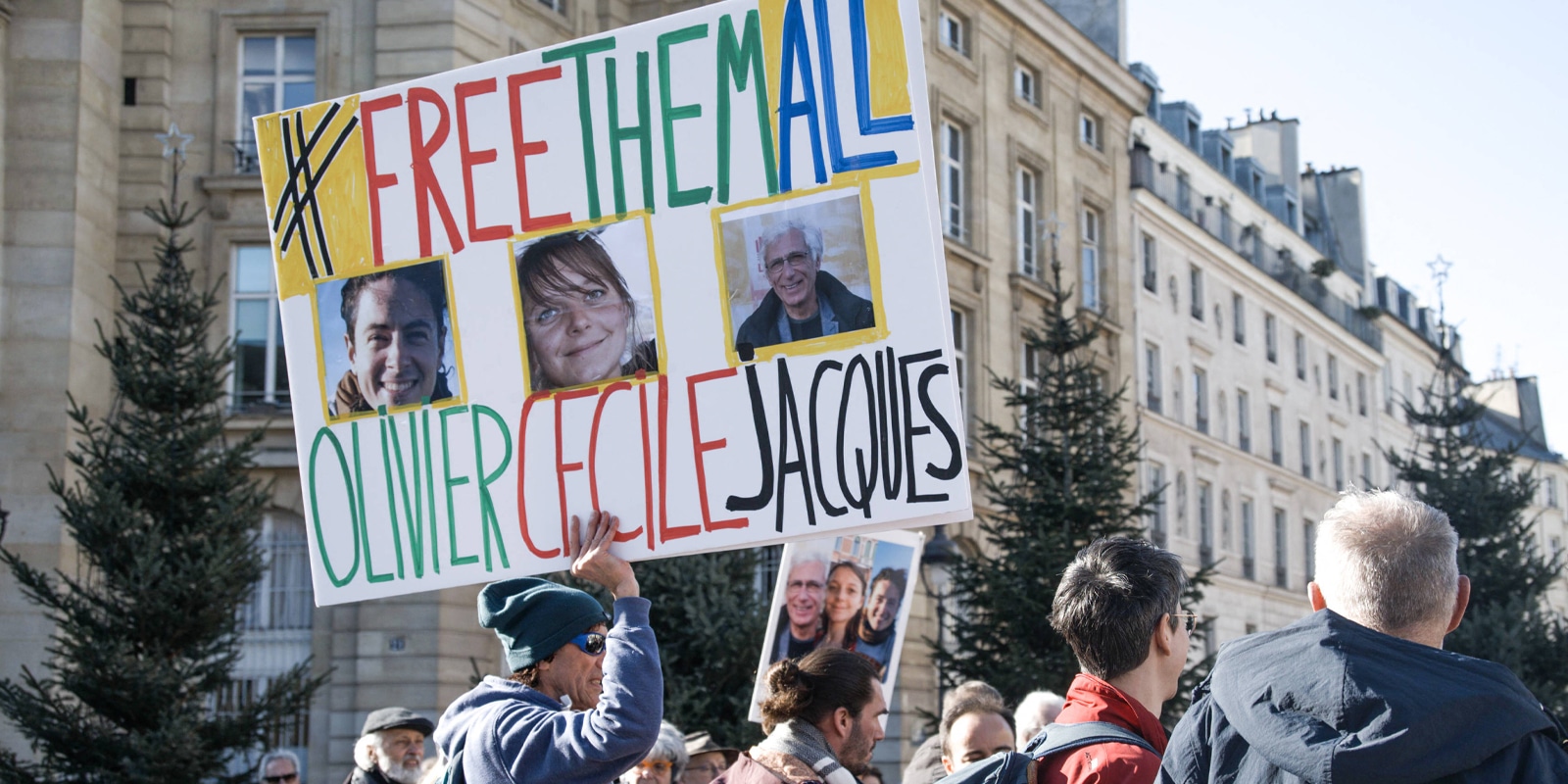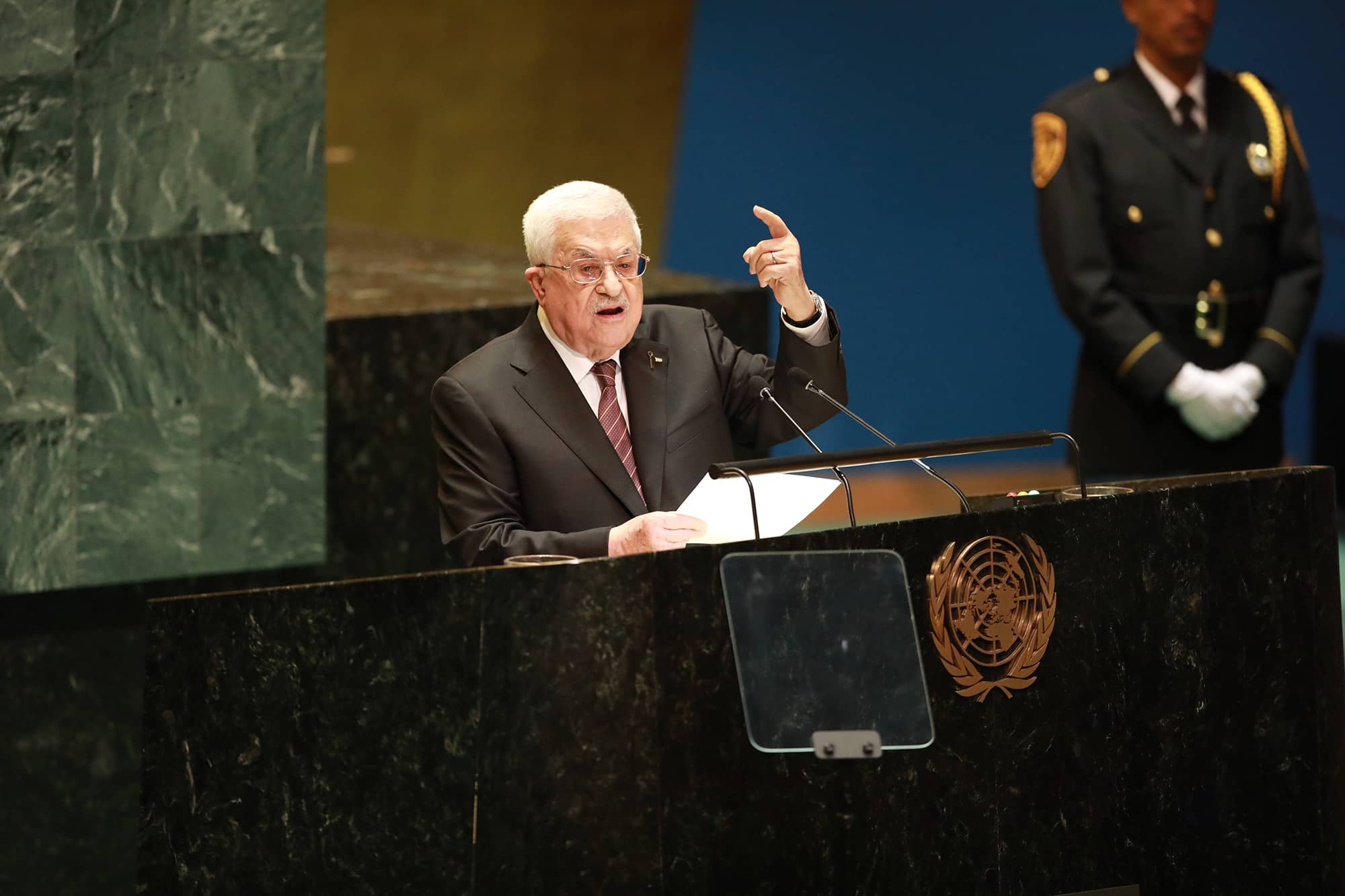On October 14, 2025, the Iranian judiciary sentenced two French citizens imprisoned in the country to lengthy prison terms. Cécile Kohler, a teacher, and her partner, Jacques Paris, were detained in May 2022 and initially accused of attempting to incite protests. An Iranian court has issued a preliminary ruling sentencing both French nationals to long prison terms on charges of espionage and collaboration with foreign intelligence agencies.
The judiciary-affiliated news website Mizan Online either omitted or distorted important details in its October 14 report. According to the report, the two individuals, whose names were not officially disclosed, were arrested in March 2023 and have since been convicted of multiple charges, including spying for the French intelligence agency, conspiracy against national security, and intelligence cooperation with Israel. The defendants were identified as “employees of the French intelligence service” and detained on March 9, 2023.
The report stated that the indictment was 715 pages long and resulted in seven court sessions, during which the defendants and their appointed lawyers presented their defense. Iranian officials claimed that the defendants had access to legal representation throughout the investigation and trial and were allowed to contact their families. All proceedings were conducted with a judiciary-appointed translator present, according to the report.
After reviewing the case files, witness testimonies, expert reports, and final defense statements, the court issued the following sentences: Defendant One (believed to be Cécile Kohler) was sentenced to six years in prison for espionage, five years for conspiracy to commit crimes against national security, and 20 years in internalexile for intelligence cooperation with Israel, under the charge of moharebeh (waging war against God). Defendant Two (believed to be Jacques Paris) received 10 years for espionage on behalf of France, five years for conspiracy, and 17 years for “aiding and abetting” intelligence cooperation with Israel. Iranian law allows time served during pre-trial detention to be deducted from the total sentence. The report stated that verdicts can be appealed to the Supreme Court within 20 days of notification.
The verdict came amid ongoing diplomatic talks between Tehran and Paris regarding the release of their detained nationals. Earlier in October, an Iranian court in Hormozgan Province acquitted French-German national Lennart Monterlos, who was arrested during the 12-day conflict between Israel and Iran in June, of the espionage charges against him.
Iran’s Foreign Minister Abbas Araghchi previously stated that final plans are in place to exchange an Iranian woman detained on terrorism charges in France for French detainees in Iran. Araghchi’s statement exposes the true nature of the accusations against the French detainees: they are being used as bargaining chips in Iran’s blackmail of Western democracies. For the Islamic Republic, detaining Western citizens acts as a tool of coercive diplomacy—leveraging hostages to secure concessions and intimidate governments.
On November 4, French President Emmanuel Macron announced that the French couple had been released and were en route to the French embassy in Tehran. Iranian Foreign Ministry Spokesman Esmaeil Baqai confirmed the conditional release of the two French nationals who had been imprisoned for alleged “security-related crimes.” The foreign ministry spokesman stated that the two would remain under supervision until “the next judicial phase.” Earlier, on October 22, Baqai welcomed the French decision to conditionally release Mahdieh Esfandiari—an Iranian national arrested in Lyon, France, on charges of praising terrorism. Esfandiari, 39, has lived in Lyon since 2018. She was detained in February after praising the Hamas massacre on October 7, 2023. The regime’s English-language mouthpiece, the Tehran Times, reported on November 1 about a mass rally in solidarity with Esfandiari. The newspaper argued that she had been in detention in France for nearly eight months simply for supporting Palestinians and the Palestinian cause on social media.
Iranian Hostage Diplomacy: A Systematic State Tactic
The sentencing and release of the two French nationals in Iran on espionage charges in October 2025 reveal how Iran employs the tactic of taking Western hostages to blackmail democracies.
The Iranian regime has institutionalized the arbitrary detention of foreign nationals and dual citizens as a political warfare tactic since the Islamic Revolution in 1979. The mobs galvanized by Ayatollah Khomeini’s slogans took American diplomats hostage at the United States Embassy, where the regime held them for over a year. The regime uses foreign hostages to pressure for concessions or influence negotiations, especially concerning frozen assets and sanctions. Frequently, Iran simply uses detained foreign nationals as bargaining chips to free its arrested agents in Europe.
The detention and release of the French couple demonstrate how this tactic works: the regime has successfully secured the release of its agent, Mahdieh Esfandiari, who was arrested in France. The primary goal of these hostage-taking tactics is to secure the release of Iranian agents caught in Western countries.
- In January 2025, Iranian authorities released Italian journalist Cecilia Sala, who was arrested in December 2024. Iran released Sala following the release of Iranian agent Mohammad Abadini, detained in Italy. Abadini is wanted by the U.S. for his involvement in exporting drone technologies to Iran.
- In 2023, five Americans, including Siamak Namazi (imprisoned for eight years), were released in a deal that unfroze $6 billion of Iranian assets held in South Korea.
- The release of British-Australian academic Kylie Moore-Gilbert in 2020 followed Thailand’s freeing of three Iranian men jailed for a 2012 bomb plot.
- The 2022 release of British-Iranian dual citizen Nazanin Zaghari-Ratcliffe was connected to the settlement of a significant historical debt the U.S. owed Iran.
- In May 2023, Belgian national Olivier Vandelcasteele was released after a long detention in Iran. Vandelcasteele’s release was made possible after Belgium released Assadolah Assadi, an Iranian diplomat based in Vienna, who was convicted in Antwerp over his implication in a terrorist attack in France against an Iranian opposition group. Assadi was sentenced in 2021 to twenty years in prison. Assadi is not only a terrorist but also an officer of the IRGC Quds Force.
Critics widely agree that making concessions, such as exchanging prisoners or releasing funds, only encourages Iran to continue and intensify its practice of taking hostages. Former hostages, including Xiyue Wang—a Chinese-American academic held in Iran for three years on charges of espionage—have stated they endured captivity because the regime intended to use them for prisoner swaps and to pressure the U.S. government into releasing seized Iranian assets.
For example, the IRGC considered the deal that freed Nazanin Zaghari-Ratcliffe a “great victory,” and this is expected to encourage more hostage-taking in the future. The practice of granting concessions sends a message that hostage-taking “quite literally pays dividends.” Despite international condemnation, including from Amnesty International, which called the detentions “a form of psychological torture,” Iran still views this strategy as legitimate leverage. This ongoing cycle creates a core dilemma for Western governments, as they must weigh the moral duty to free their citizens against the risk of legitimizing and reinforcing Iran’s tactics through concessions.
Meanwhile, some Western nationals remain jailed in Iran. This includes an American Jewish man, Kamran Hekmati, who was sentenced to prison after traveling to Iran. The Briton Lindsay Foreman and Swedish-Iranian researcher Ahmadreza Djalali also remain imprisoned in Iran.
JISS Policy Papers are published through the generosity of the Greg Rosshandler Family.















Palestinian and Arab Media Coverage of the Hamas Operatives Trapped in the Rafah Tunnels